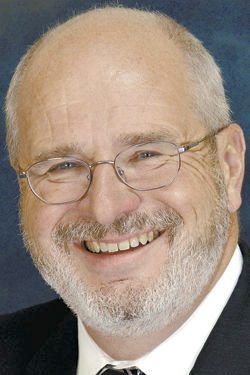Rosa Brooks begins the epilogue to her fine new book, “Tangled Up in Blue: Policing the American City,” with a quote from James Thurber.
“It is better to know some of the questions than all of the answers,” Thurber says.
It’s in that spirit that Brooks wrote the book, which recounts her experiences as a volunteer reserve police officer in Washington, D.C. (In her other life, Brooks is a Georgetown University law professor, a noted author and the married mother of two teenagers.)
It’s also in that spirit that Brooks came to Indianapolis at the invitation of a group of women civic leaders on a Wednesday night. She took part in a community conversation at Indiana Landmarks with Marion County Prosecutor Ryan Mears.
In their discussion, Mears and Brooks posed more questions than they provided definitive answers.
That was refreshing, because the challenges confronting law enforcement in an increasingly diverse society resist easy or entrenched certitude.
Perhaps the best thing about Brooks’ book is that it isn’t polemical. She is determinedly nonjudgmental.
She writes about people, not abstract issues. The people about whom she writes are her fellow D.C. police officers and those they serve.
The folks in her book reveal themselves not to be archetypes or caricatures, but actual human beings. That means they are both good and bad, often confused, sometimes weak, sometimes strong and, far less often, vicious.
In her book and in the conversation with Prosecutor Mears, she questions not the individuals who serve as police officers or those with whom they come in contact but instead on the things we ask cops to do and the problems we expect them to solve.
It’s the correct approach, as Mears noted in the discussion.
He pointed out that more than half the people who first enter the criminal justice system end up having future problems with the law, often involving prolonged stays behind bars. This means, Mears argued, that our criminal justice system isn’t doing a very good job.
He’s right.
If the purpose of the criminal justice system is to keep people safe and to prevent crime, then having a system that seems to encourage—and maybe even trains—people to threaten the public’s safety and become career criminals doesn’t make sense.
Such a system is worth questioning.
Brooks and Mears took turns focusing on the points at which friction can escalate to conflict and then to tragedy. Mears talked about routing troubled young people to Boys Clubs and Girls Clubs rather than into the juvenile justice system. Doing so is less expensive in both the short run and the long run—and far less likely to help a young person become a career criminal.
Among other things, Brooks questioned why police officers—people with guns—make routine traffic stops. Other similar offenses rarely bring citizens into contact with armed officials. Those offenses are less likely to involve people who are poor or people who are Black. The fact that Black people are six times as likely to be stopped for traffic offenses as white people just compounds the problem.
And the tension between police and the public they serve.
At the heart of the Brooks’ book and the conversation she and Mears shared was a buried thesis—namely, that hardened attitudes, whether on the left or right, won’t help us make this situation better.
In her book, Brooks writes about how her mother—the renowned author and progressive activist Barbara Ehrenreich—disapproved of Brooks’ decision to become a volunteer police officer. Ehrenreich, in Brooks’ telling, saw cops as the enemy, oppressors who tear-gassed protestors and shot unarmed Black people.
When I first started reading the book, I wondered why Brooks was spending so much time discussing her relationship with her mother. Then I realized that the tension within her family mirrored the tension within our communities and nation.
And the way to ease that stress was to begin to question what we think we know for sure.
“It is better to know some of the questions than all of the answers,” James Thurber said.
Precisely.
John Krull is director of Franklin College’s Pulliam School of Journalism and publisher of TheStatehouseFile.com, a news website powered by Franklin College journalism students. Send comments to [email protected].





